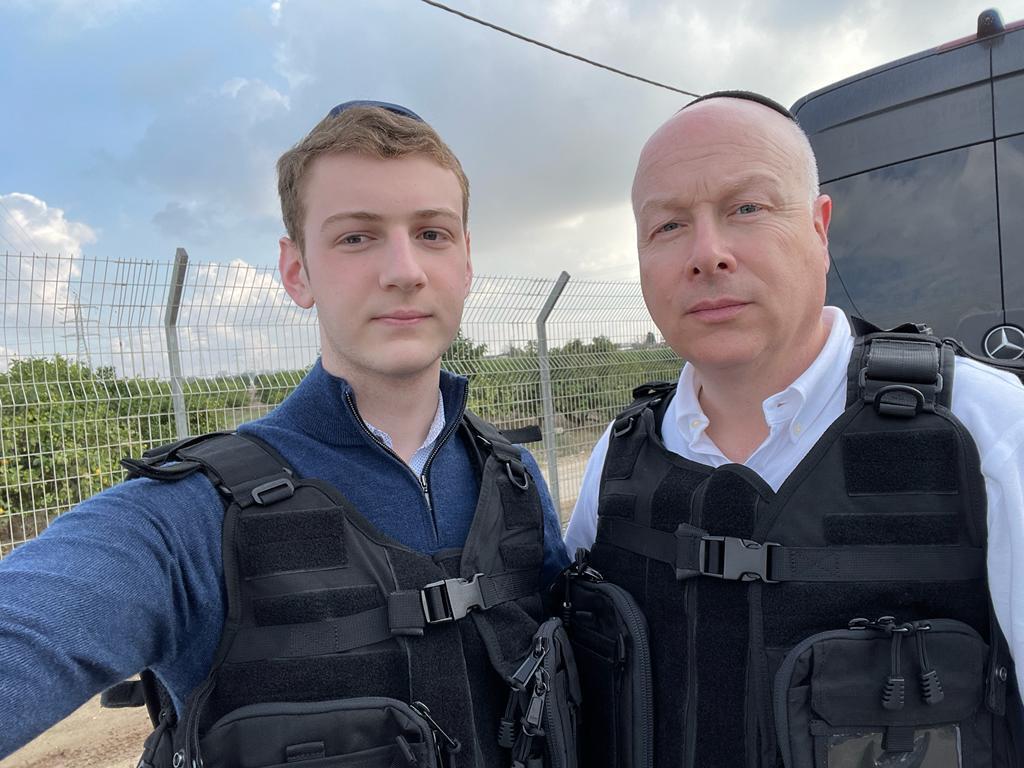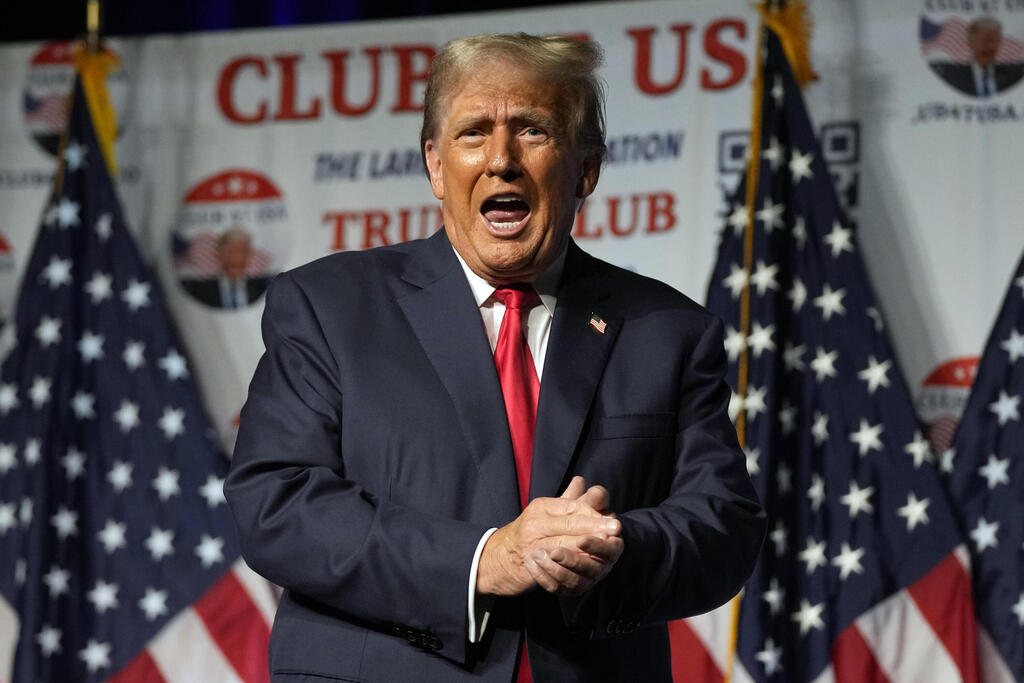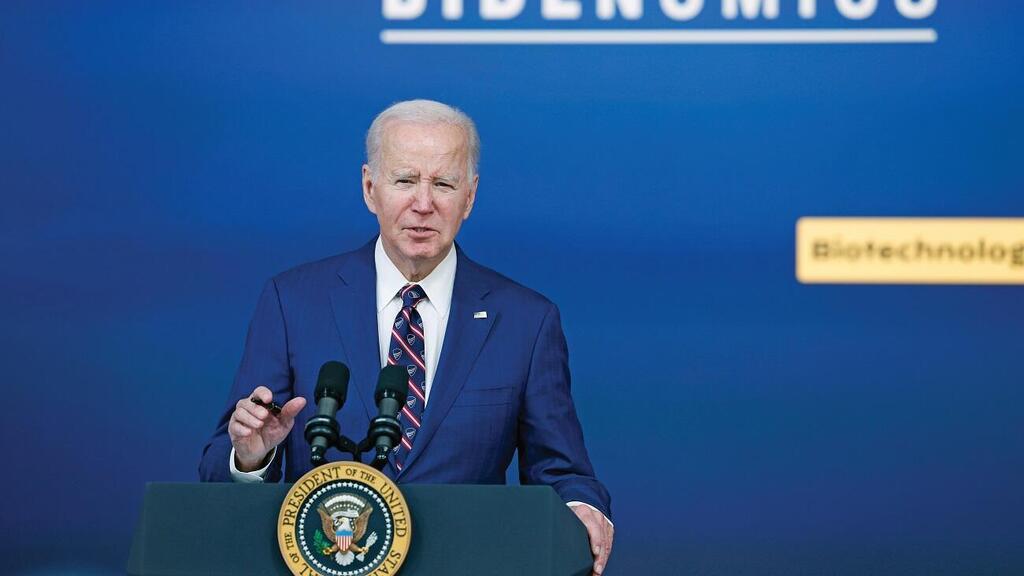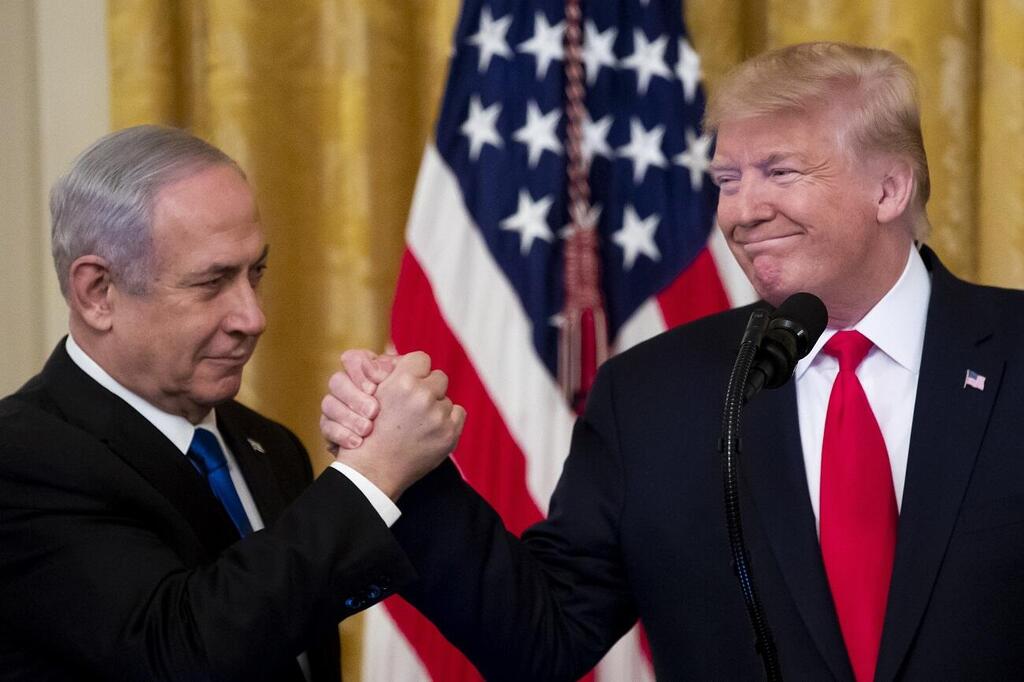Getting your Trinity Audio player ready...
Jason Greenblatt, a former senior adviser to U.S. President Donald Trump, believes that if the 77-year-old were still in office, the war between Israel and Hamas could have been avoided.
More stories:
“I believe that if President Trump were still the president, Hamas would not have attempted [the October 7 attack]. Iran would be quieter, the Houthis would be quieter or Hezbollah wouldn't be thinking of it because President Trump was a very strong president,” he told Ynet in an interview.
“He understood the region, the region understood him and largely appreciated him. I think most people were scared. He was very unpredictable and let's say they behaved differently and better under his leadership.”
Greenblatt, who currently serves as the head of diplomacy at the Jerusalem Center for Public Affairs, made a brief visit to Israel this week during which he toured Kfar Aza, one of the Gaza border communities worst hit on October 7.
5 View gallery


Former Trump adviser Jason Greenblatt and his son Ivri in Kfar Aza
(Photo: Jerusalem Center for Public Affairs)
The former Trump adviser said that while the “Biden administration has been extremely supportive” of Israel, he criticized the sitting president for “not confronting the Iranian regime sufficiently,” as well as for his endorsement of a two-state solution.
Amid reports that the United States has pressured Israel to shift to the next phase of the war, exchanging mass deployment of troops to Gaza for surgical operations, Greenblatt said that it was not Washington’s place to dictate to Jerusalem how to run its war in Gaza.
“America shouldn't be demanding anything of Israel. Israel's here, Israel's on the ground, like usually Israel's defending itself by itself. So it's not for any country to tell Israel what to do,” he said.
“This is Israel's existence that we're talking about. Israel is the one that suffered from the October 7 atrocities, so I'm not in the room. I don't know exactly what the Biden administration is saying, but I hope they're not making demands, but rather making helpful suggestions."
Greenblatt also said that he believes that the deployment of U.S. aircraft carriers to the region has been “extremely helpful in deterring Hezbollah and the Iranian regime from acting further” but was “very uncomfortable” with the removal of the USS Gerald Ford strike group this week.
Dubbed one of the architects of the Abraham Accords, a series of U.S.-mediated agreements to establish diplomatic ties between Israel and various Muslim states, Greenblatt said that he sees Saudi Arabia, which was reportedly close to such an agreement before the war, "begin to pick up the pieces again" with the cessation of hostilities.
He said that he believed that despite Trump's recent negative remarks about Prime Minister Benjamin Netanyahu, the two could renew their working relationship should they both hold office at the same time again.
“People criticize and people say things, but at the end of the day, when push comes to shove and they have to work together, I think they will. They had a great working relationship when he was in the Oval Office. And I think they can reestablish a very strong and critical working relationship if they end up being leaders at the same time. I think that they respect each other,” he said.
“President Trump didn't second guess Israel. He understood the issue, the nature of the Israeli-Palestinian conflict. He wasn't throwing out the concept of the two-state solution in a vacuum. Our administration took the time to create a very detailed peace plan. So I think he will be still, as he was, an extremely strong supporter of Israel, somebody very positive and important for Israel.”







